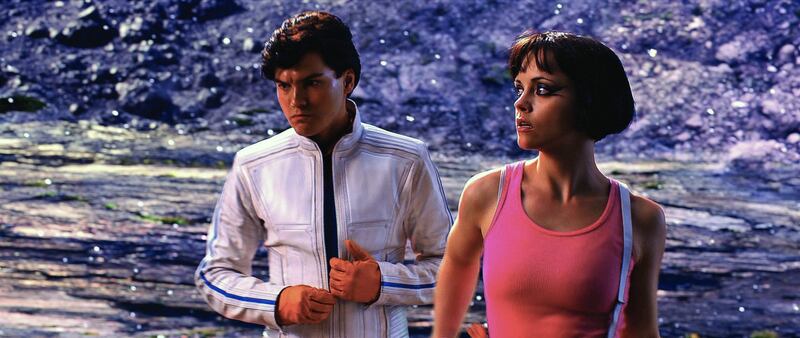HOLLYWOOD PICK:
Fifteen years ago, Lana and Lilly Wachowski were waiting to see how the world would react to Speed Racer (2008), their joyfully demented adaptation of Tatsuo Yoshida’s anime series that ultimately lost Warner Bros. millions of dollars—and became a cult classic.
Speed Racer chronicles the rise of Speed (Emile Hirsch), a wide-eyed wunderkind desperate to win the Grand Prix racing championship. Yet as Wachowski disciples know, the film is also a hallucinogenic, anti-capitalist manifesto that is as tender as it is frenetic.
From the first scene, Speed Racer beautifully blurs the line between live action and animation, imagining a young Speed racing a car that looks like one of his math-class doodles come to life. The Wachowkis may have pursued photorealism in The Matrix, but here they whisk their actors into swirling dreamscapes, taking the innovation of Gene Kelly’s dance with Jerry Mouse to its trippy, logical conclusion.
While the racing scenes are delirious fun, the Wachowskis seem most invested in the scrappy Racer family’s clash with E.P. Arnold Royalton (the splendidly villainous Roger Allam), a racing tycoon determined to enlist and corrupt Speed.
“People like you have way too much money,” Pops Racer (John Goodman) declares to Royalton. “When someone gets that kind of money, they think that the rules everybody else plays by don’t mean squat to them.” Needless to say, if Bernie Sanders has a favorite Wachowskis movie, this is it.

Rage against tyranny has driven every film the Wachowskis have directed (starting with their first feature, the 1996 lesbian romance Bound). But like all of their movies, Speed Racer cares about both the political and the interpersonal, especially in the moving scenes between Speed and Pops.
“Speed, I understand that every child has to leave home,” Pops tells his son as he prepares to move out. “But I want you to know, that door is always open. You can always come back. Because I love you.”
Freedom without abandonment, love without possession—those are ideals worth racing for, Speed Racer tells us. And it’s a mark of the Wachowskis’ skill with actors that what Speed sees in his father’s eyes is more beautiful than any checkered flag. HBO Max.
